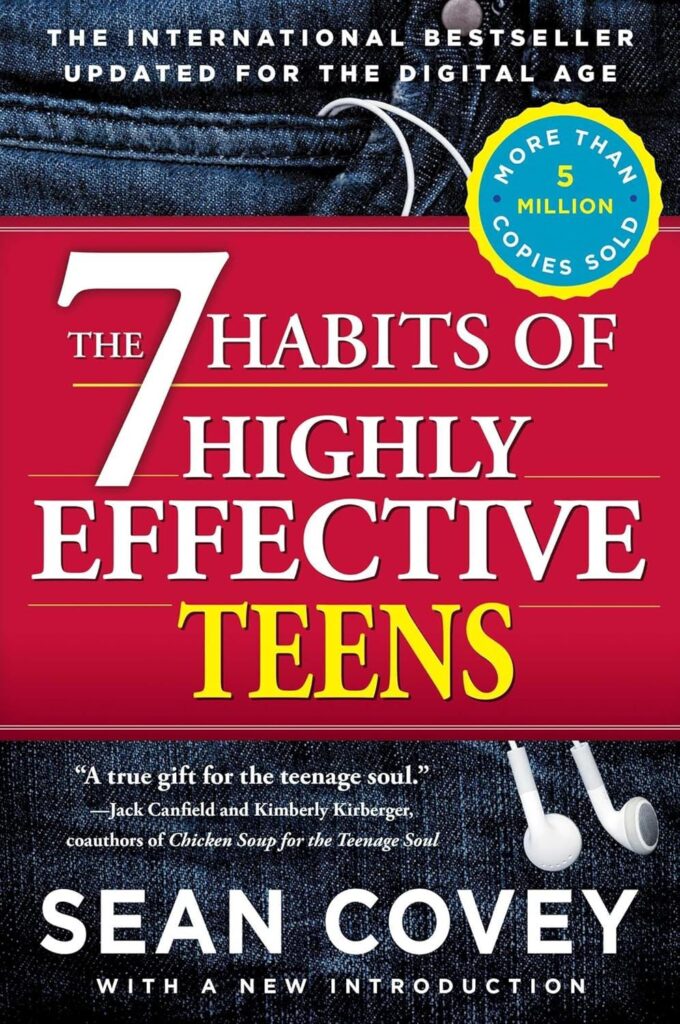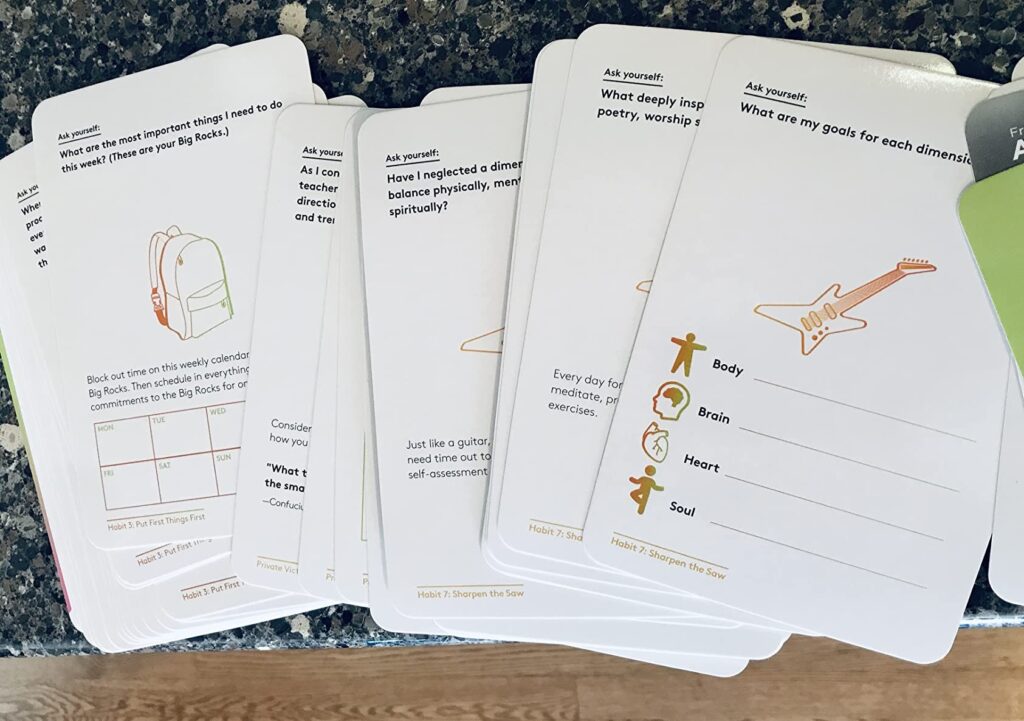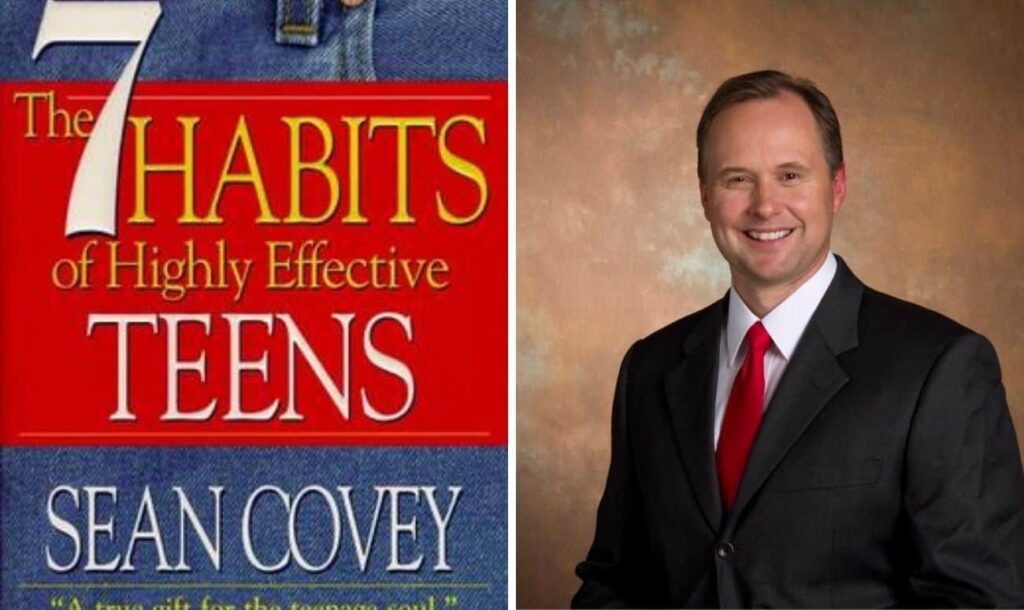
Have you ever felt like life as a teenager is just too much to handle school deadlines, family expectations, peer pressure, and the endless distractions of social media? If you’re nodding your head, you’re not alone. Many teens struggle with balance, confidence, and direction. But here’s the good news: you don’t have to stay stuck.
The 7 Habits of Highly Effective Teens book by Sean Covey gives you a simple, practical roadmap to take control of your choices and design a life you’re proud of. It’s not about being perfect. It’s about building habits that help you succeed, step by step.
This isn’t just another self-help book; it’s a guide written with teens in mind full of stories, humor, and exercises you can actually use. In this The 7 Habits of Highly Effective Teens book summary, we’ll break down each habit, explain why it matters, and show how you can apply it to your everyday life.
Let’s dive into the seven habits that can transform the way you think, act, and live.
1. Be Proactive: Take Charge of Your Life
This first habit is the foundation of everything. Being proactive means understanding that you are in control of your actions, not your circumstances. Too often, teens fall into the trap of blaming others: “My parents don’t understand me,” or “The teacher gave me a bad grade.” But when you’re proactive, you stop waiting for life to happen you make life happen.
Example in teen life:
Imagine you fail a math test. A reactive teen might say, “The teacher is unfair,” and give up. A proactive teen, on the other hand, admits, “I didn’t study enough,” then makes a plan to improve by practicing every day.
Practical tip: Start using “I choose” language instead of “I can’t” or “I have to.” For example, say, “I choose to spend 30 minutes studying before I scroll on TikTok.” That small change rewires your brain to take responsibility.
2. Begin with the End in Mind: Define Your Goals
This habit is all about vision. Ask yourself: What kind of person do I want to become? What do I want people to remember me for? When you begin with the end in mind, you set a direction for your actions.
Example in teen life:
If your dream is to be a doctor, your end in mind is helping people and excelling academically. That vision guides your choices you’ll likely spend more time studying science and less time on things that don’t serve your goal.
Practical tip: Write a personal mission statement. It doesn’t have to be long. Something like, “I want to be kind, responsible, and someone who inspires others.” Having it written down gives you a compass to make decisions.
3. Put First Things First: Master Your Time

Time management is one of the biggest challenges for teens. Between classes, homework, friends, sports, and hobbies, it feels like there’s never enough time. This habit teaches you to separate the “important” from the “urgent.”
Example in teen life:
You’ve got a big science project due next week. Urgent distractions like replying to every text or binge-watching YouTube will eat your time. But putting first things first means sitting down, planning the project, and finishing it before relaxing.
Practical tip: Use the “Big Rocks” method. Write down your most important tasks (schoolwork, exercise, family time) and schedule them first. Then fill in the smaller, less important activities later.
Read also: The Garden Within Summary
4. Think Win-Win: Build Positive Relationships
Teen life can feel like a competition who has the best grades, the most followers, or the coolest clothes. But Covey says the key to happiness is shifting from competition to collaboration. Win-win thinking means looking for solutions that benefit everyone.
Example in teen life:
You and your friend both want to use the basketball court. Instead of fighting over it, you agree to practice shooting for 30 minutes and then let your friend use it for drills. Both of you win.
Practical tip: When conflicts arise, ask yourself, “How can we both get something positive from this?” That mindset makes you more trustworthy, respected, and likable.
5. Seek First to Understand, Then to Be Understood: Listen With Empathy

How many times have you felt like nobody gets you? Parents nag, teachers lecture, and friends sometimes talk over you. But here’s the secret: the best way to be understood is to listen first.
Example in teen life:
When your friend is upset about failing a test, don’t jump in with advice right away. Instead, listen fully: “I hear you you worked hard, and it’s frustrating.” Once your friend feels understood, they’ll be more open to hearing your ideas.
Practical tip: Practice “mirroring.” Repeat back what someone says in your own words. It shows you’re truly paying attention, and it helps them feel valued.
6. Synergize: Value Teamwork and Differences

Synergy is about teamwork working together in a way that creates more than what each person could achieve alone. It also means appreciating differences instead of judging them
Example in teen life:
In a group project, maybe you’re great at design, your friend is a natural speaker, and another classmate is strong in research. By combining your strengths, your project shines. That’s synergy.
Practical tip: Next time you’re in a group, identify each person’s unique strength. Instead of complaining that someone “doesn’t think like you,” ask how their perspective can make the project better.
7. Sharpen the Saw: Take Care of Yourself
This habit is about renewal taking care of your body, mind, heart, and spirit. Teens often push themselves to exhaustion, but long-term success requires balance.
Body: Eat healthy, sleep enough, and exercise.
Mind: Keep learning beyond school read, explore new skills, or solve puzzles.
Heart: Nurture relationships with family and friends.
Spirit: Find meaning through journaling, prayer, nature, or meditation.
Example in teen life:
A teen who studies nonstop without rest will burn out. By sharpening the saw going for a jog, laughing with friends, or taking quiet time you recharge and perform better.
Practical tip: Schedule at least one “renewal activity” daily. Even 20 minutes of reading, sketching, or walking can refresh your energy.
Life-Changing Takeaways
1. Your choices, not your circumstances, define your future.
2. A clear vision keeps you focused when distractions arise.
3. Prioritizing the important prevents stress and chaos.
4. Win-win relationships create trust and respect.
5. Listening deeply can solve conflicts faster than arguing.
6. Teamwork multiplies results far beyond individual effort.
7. Renewal is essential you can’t pour from an empty cup.
Why This Book Stands Out for Teens
Unlike many self-help guides written in abstract language, The 7 Habits of Highly Effective Teens book feels like it’s speaking directly to you. Sean Covey uses humor, cartoons, and real teen stories that make the lessons relatable. It doesn’t preach it guides.
That’s why teens across the world keep this book close: it’s not just about school or work; it’s about building the habits that make you effective in life.
About the Author

Sean Covey is a writer, speaker, and business leader best known for his work in personal development for young people. As the son of Stephen R. Covey, the legendary author of The 7 Habits of Highly Effective People, Sean followed in his father’s footsteps but chose to focus on teenagers. His book, The 7 Habits of Highly Effective Teens, has sold millions of copies worldwide and has been translated into multiple languages, making it a global guide for youth empowerment.
Beyond writing, Sean has served in leadership roles at FranklinCovey, a company dedicated to helping individuals and organizations achieve greatness. His style blends practical advice with humor and real-life stories, which makes his books relatable and engaging for teens. Through his work, Sean continues to inspire young people to make better choices, develop confidence, and unlock their full potential.
Ready to Transform Your Teen Years?
If The 7 Habits of Highly Effective Teens book feels like the guide you’ve been waiting for, this is your moment to take action. The habits you start building today will shape the future you dream about. Don’t just read about change live it.
Final Thoughts
The teenage years are a turning point you’re building the habits that will shape your future. The beauty of The 7 Habits of Highly Effective Teens book is that it proves you don’t need to wait until adulthood to take charge of your life. You can start now.
By being proactive, setting goals, managing time, building healthy relationships, listening with empathy, working with others, and caring for yourself, you create a foundation for success and happiness.
These seven habits aren’t quick fixes. They’re lifelong tools. And the earlier you begin practicing them, the stronger your foundation will be.
So, if you’ve ever wondered how to gain confidence, balance your life, and prepare for a bright future, this book gives you the answer. Start small, apply one habit at a time, and watch how your life transforms.
Frequently Asked Questions (FAQ)
1. What is The 7 Habits of Highly Effective Teens book about?
It’s a self-help guide by Sean Covey that teaches teenagers how to build confidence, manage their time, and make better decisions through seven powerful habits.
2. Is this book only for teenagers?
While the book is written mainly for teens, its lessons apply to anyone who wants to improve their life. Parents and teachers often find it useful too.
3. How is The 7 Habits of Highly Effective Teens book different from the adult version?
Sean Covey adapts the original ideas from his father’s book (The 7 Habits of Highly Effective People) into fun, relatable stories and examples that teens can easily understand.
4. Can these habits really make a difference in daily life?
Yes. Many readers have shared how applying even one or two habits like managing time better or thinking win-win helped them reduce stress and improve relationships.
5. Do I need to practice all seven habits at once?
Not at all. You can start with one habit, apply it consistently, and then move on to the others. Over time, they build on each other and become part of your lifestyle.
